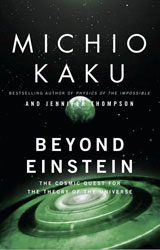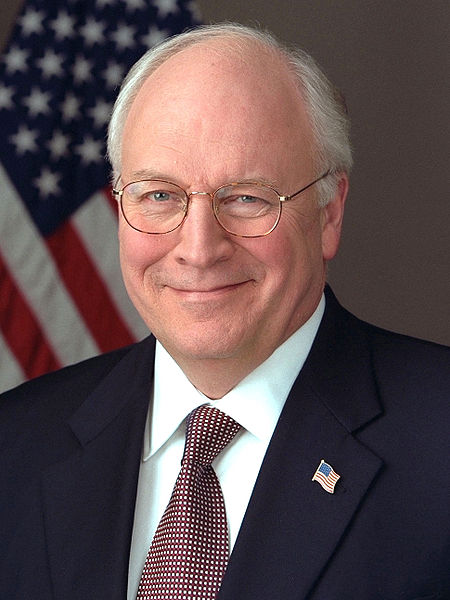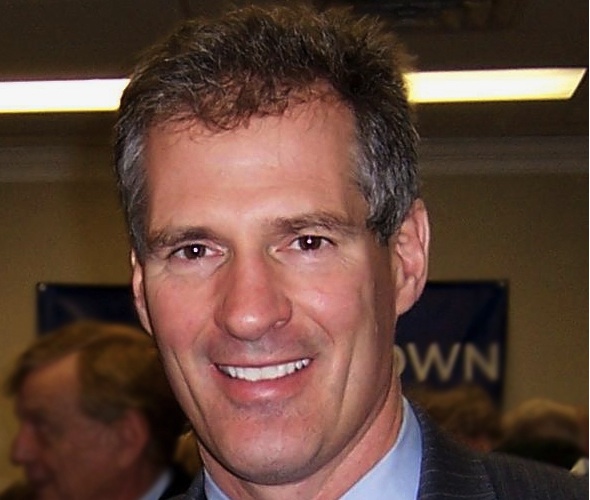My book “Beyond Einstein” takes readers on an exciting excursion into discoveries that have led scientists to the brightest new prospect in theoretical physics today–superstring theory. Simply answer the statement below […]
All Articles
Central America’s employment of low-skilled workers could not withstand a fully developed Chinese labor market where agricultural mechanization would spur mass migration to cities, reports The Guardian.
The New York Times magazine profiles squatters and freegans who have taken advantage of the many housing foreclosures in Buffalo, NY and how they’ve earned their neighbors’, and the law’s, respect.
More doctors are giving consultations online as technology enables convenient patient-doctor exchanges on minor medical issues; the trend is saving everyone time and money.
Rob Reynolds recalls the Santa Barbara oil spill of 1969, how business leaders were more coarse at that time, and how reaction to the spill fed a fledgling American environmental movement.
Nicolas Carr tells The Atlantic that the Internet has changed our way of life, sometimes for the worse. Today we are a distracted and anxious society because of our voracious appetite for information, Carr says.
Instead of reacting to the Sunday morning political shows, I figured I’d beat them to the punch. “Cheney’s Katrina” has a nice ring to it. All the guests seem to […]
The New York Review of Books continues to host the dialog between Peter Beinart and Abraham Foxman over how much support Irsael is receiving from a new generation of American Jews.
What are natural laws? How do scientists test them? Is time illusory or real? Do black holes make the universe expand? These questions were posed at a recent workshop for philosophers and physicists.
America’s long-term influence depends on its defense of an open, global society, writes The Economist: America must build a society that welcomes immigrants as well as trade.
Examining the brains of deceased alcoholics who smoked, researchers found drinkers who also smoked derived more pleasure from each activity individually, making both harder to quit.
“Americans like to see themselves as rugged individualists, a nation defined by the idea that people should set their own course through life,” but in reality we embrace group membership.
Oil leaking from a British Petroleum pipe under the sea floor in the Gulf of Mexico has reached land slicking wildlife habitats on the Southern U.S. coast, as well as […]
Childbirth may be the miracle of life, but its practical reality is grounded in a set of rather utilitarian necessities that ensure the mother and baby’s health and survival. While […]
As a shock jock radio DJ, Glenn Beck called his rival’s wife to make fun of her recent miscarriage on the air. It’s that humanistic spirit that suffuses Beck’s broadcasting […]
Ben Lewis at Prospect Magazine says postmodernism will be remembered as the graveyard of the admirable modernist project for its formulas, narcissism, sentiment and cynicism.
The unconventional nature of the wars in Iraq and Afghanistan has left a legal vacuum in the area of prisoner detentions, one that needs filling, says Samuel Issacharoff, professor of constitutional law at NYU.
New photographs in which Allen Ginsberg captured his fellow Beats—Kerouac, Corso, and himself—have been unearthed by scholars, enriching the American Beat catalog.
“Jewish populations around the world share more than traditions and laws—they also have a common genetic background,” says the New Scientist about a study performed at NYU.
The federal government is enlisting private companies like Pfizer to promote HIV/AIDS prevention programs in high-risk areas following a lull of such programs during Bush’s ‘abstinence-only’ years.
According to Al Jazeera, while the Obama administration is losing ground to the Israelis and the Chinese, it has reasserted its dominance over Japan, ousting a potentially valuable leader.
The English language is infamous for its difficult spelling, and while no immediate changes appear on the horizon, reformists of the language continue their quest to change English spelling.
“Equal opportunity is essential but not enough,” said LBJ forty five years ago to inaugurate an era of affirmative action. His words ring true today when the income gap is widening.
We all live with the newness of technology and the oldness of our social customs, so what happens when death unites the two? What happens to your online self when you die?
Is evil still a relevant concept in our increasingly secular times or is it too mystical to be discussed rationally? What are the different forms of evil and how do we combat them?
Sen. Scott Brown (R-MA) has turned out to be the moderate, relatively independent Republican he said he would be. In other words he turned out not to be what many […]
God bless whistleblowers. Graham Rayman and the Village Voice obtained hundreds of hours of covertly recorded audio from one disgruntled Bed-Stuy cop: Two years ago, a police officer in a […]
In the Matrix trilogy, God is portrayed as a software Architect. The fact that the first movie was released in 1999 is appropriate since software code had begun to exert […]
Right now our most advanced robots are not quite as smart as we would want them to be. One of the most popular—Honda’s humanoid robot, Asimo—is quite sophisticated but you won’t […]
What happens when an artist loses his or her creative currency – the capacity for self-expression? That’s exactly what happened to legendary Los Angeles graffiti artist Tony Quan, a.k.a. Tempt […]









